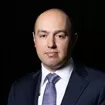The Third Circuit reversed the Bankruptcy Court explicitly, holding that the Bankruptcy Code "mandates the appointment of an examiner to investigate FTX's management." The Court of Appeals rejected the Bankruptcy Court's ruling that the Bankruptcy Code, by permitting the Court to appoint an examiner "as is appropriate," gives the Court the flexibility to appoint no examiner in this case, holding that the Code mandates that the Court "shall" appoint an examiner provided the case at hand meets certain minimal conditions. We expect the Bankruptcy Court to appoint an examiner consistent with the United States Trustee's request for an examiner to review the Debtors' prepetition management. In re FTX Trading Ltd., et al. v. Andrew R. Vara, ECF No. 66 (3d Cir. Jan. 19, 2024) (Case No. 23-2297).
Background
FTX Trading Ltd. and its affiliates filed for bankruptcy in late 2022 after a precipitous crash in the value of various crypto assets and in the company. Shortly after the bankruptcy filing, the United States Trustee filed a motion seeking appointment of an examiner to investigate FTX's collapse and the role of pre-bankruptcy management in that collapse. The US Trustee sought appointment of an examiner under section 1104(c) of the Bankruptcy Code, which states:
If the court does not order the appointment of a trustee under this section, then at any time before the confirmation of a plan, on request of a party in interest or the United States trustee . . . the court shall order the appointment of an examiner to conduct such an investigation of the debtor as is appropriate, including an investigation of any allegations of fraud, dishonesty, incompetence, misconduct, mismanagement, or irregularity in the management of the affairs of the debtor of or by current or former management of the debtor, if —
- such appointment is in the interests of creditors, any equity security holders, and other interests of the estate; or
- the debtor's fixed, liquidated, unsecured debts, other than debts for goods, services, or taxes, or owing to an insider, exceed $5,000,000. (emphasis added)
The US Trustee argued that the Bankruptcy Code mandates the appointment of an examiner here because FTX's debts exceed $5 million and the US Trustee made the motion, which under the plain terms of the statute state that the court shall appoint an examiner in these circumstances.
The Debtors, the UCC and others opposed the motion. They argued that the phrase "as is appropriate" (italicized above for reader ease), allowed the Court "to deny the US Trustee's motion to appoint an examiner . . . ."
Analysis
The Court ruled decisively that "the plain text of section 1104(c)(2) requires a bankruptcy court to appoint an examiner if requested by the US Trustee or a party in interest" and the debtors' total debt exceeds $5 million.
The Third Circuit stated that "Congress made plain its intent to mandate the appointment of an examiner by using the word 'shall', as in the Bankruptcy Court 'shall' appoint an examiner if the terms of the statute have been met . . . The meaning of the word 'shall' is not ambiguous. It is a word of 'command.'"
The Court rejects the Bankruptcy Court's ruling that the use of the phrase "as is appropriate" to moderate the appointment of an examiner means "the Bankruptcy Court appoints an examiner only if it decides an investigation would suit the circumstances." (emphasis added). The Court notes that the US Trustee argued that the Bankruptcy Court's interpretation would apply only if Congress had given the court authority to appoint an examiner "if appropriate." By contrast the phrase "as is appropriate" therefore must refer to the "nature of the investigation, not the appointment of the examiner." The Court held that "this interpretation . . . is further bolstered by the context. Immediately after the phrase "as is appropriate", the statute provides the word "including" and a list of topics that merit investigation: "allegations of fraud, dishonesty, incompetence, misconduct, mismanagement or irregularity in the management of the affairs of the debtor of or by current or former management of the debtor."
The Court of Appeals further held that "reading subsection (c)(2) as discretionary would require disregarding direct evidence of Congress's intent." The Court notes that the legislative history includes a statement that chapter 11 "ensures 'special protection for the large cases having great public interest'" in the form of a "provision guaranteeing an 'automatically appointed' examiner in large cases, a measure designed to 'preserve and enhance' debtors and creditors interests, 'as well as the public interest.'"
While Congress mandates the appointment of an examiner, it grants the Bankruptcy Court judge discretion to determine the "scope, degree, duration and cost of the examiner's investigation." By setting these parameters the court can "ensure that the examiner is not duplicating other parties' efforts" or disrupting the bankruptcy process.
On appeal the appellees, including the Debtors, argued that an investigation would duplicate the efforts of the Debtors' post-petition management and Creditors' Committee to review the Debtors' prepetition activities. The Court of Appeals rejected these arguments for several reasons. First, under the Bankruptcy Code, an examiner must be "disinterested." The Court held that the Bankruptcy Code "forbids a debtor in possession, the quintessential 'insider', from performing the duties of an examiner and investigating itself." The Court states that this requirement "of disinterest is particularly salient here, where issues of potential conflicts of interest arising from debtor's counsel serving as prepetition advisors to FTX have been raised repeatedly."
Second, the Court held that an examiner must make its finding "public, an obligation neither a creditor committee nor a debtor in possession shares." The Court states that a public report "seems particularly appropriate here" and that the report would also "ensure that the Bankruptcy Court will have the opportunity to consider the greater public interest when approving the FTX Group's reorganization plan."
The Court ultimately remanded the matter to the Bankruptcy Court "with instructions to order the appointment of an examiner."
Takeaways
- The Third Circuit's ruling conforms with rulings from other circuits on this matter. See, e.g., Morgenstern v. Revco D.S., Inc. (In re Revco D.S., Inc.), 898 F.2d 498, 22 C.B.C.2d 841 (6th Cir. 1990) (when the statutory requirements of section 1104(b)(2) (now 1104(c)(2)) are present, the court has no discretion but to order the appointment of an examiner; the statute is clear on its face); Walton v. Cornerstone Ministries Invs., Inc., 398 B.R. 77, 78 (N.D. Ga. 2008).
- The Third Circuit expressly directs the bankruptcy Court to appoint an examiner. We expect the bankruptcy Court to do so soon. The Third Circuit particularly emphasizes the need for the Examiner to be independent.
- The Third Circuit is clear that the Bankruptcy Court maintains discretion over the scope of the examiner's role. However, the Court of appeals also focuses on the need for the public to understand what transpired in the run up to the bankruptcy through the public-facing examiner report. Moreover, the Court of Appeals urges the Bankruptcy Court to consider the public interest in confirming a plan in FTX. Therefore, we expect the bankruptcy Court to give the examiner authority to investigate the downfall of the company prior to the bankruptcy with some degree of breadth.
- The next FTX Bankruptcy Court hearing is slated for January 31.
The content of this article is intended to provide a general guide to the subject matter. Specialist advice should be sought about your specific circumstances.



